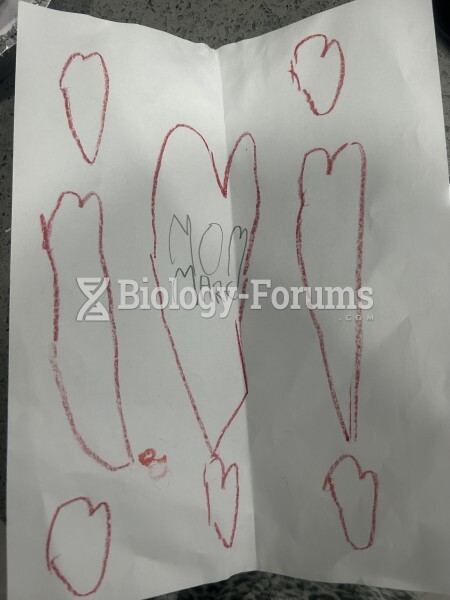|
|
|
Many supplement containers do not even contain what their labels say. There are many documented reports of products containing much less, or more, that what is listed on their labels. They may also contain undisclosed prescription drugs and even contaminants.
Today, nearly 8 out of 10 pregnant women living with HIV (about 1.1 million), receive antiretrovirals.
Drug abusers experience the following scenario: The pleasure given by their drug (or drugs) of choice is so strong that it is difficult to eradicate even after years of staying away from the substances involved. Certain triggers may cause a drug abuser to relapse. Research shows that long-term drug abuse results in significant changes in brain function that persist long after an individual stops using drugs. It is most important to realize that the same is true of not just illegal substances but alcohol and tobacco as well.
Pregnant women usually experience a heightened sense of smell beginning late in the first trimester. Some experts call this the body's way of protecting a pregnant woman from foods that are unsafe for the fetus.
The U.S. Preventive Services Task Force recommends that all women age 65 years of age or older should be screened with bone densitometry.
 This girl ran four spinning machines in a cotton mill in Whitnel, North Carolina. Only 4 feet, 3 inc
This girl ran four spinning machines in a cotton mill in Whitnel, North Carolina. Only 4 feet, 3 inc
 Three standard sizes of cuffs: a small cuff for a child or frail adult; a normal-sized adult cuff; ...
Three standard sizes of cuffs: a small cuff for a child or frail adult; a normal-sized adult cuff; ...





